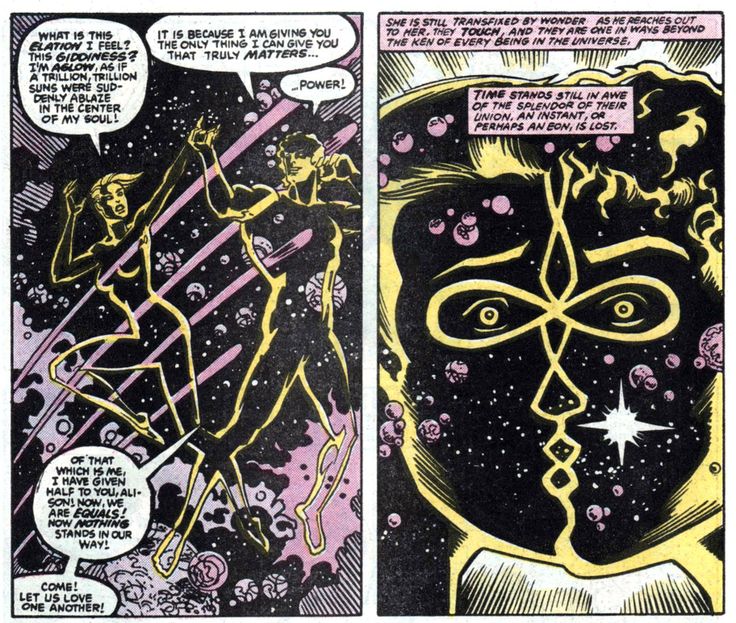


The omnipotence paradox is the paradox that arises from the question (or some variation thereof) "Can an omnipotent god create a rock so heavy that he cannot lift it?" No matter how the question is answered, the result is that an omnipotent being is logically incoherent and thus cannot exist. I get a lot of different reactions from theists when I bring up the omnipotence paradox. So God isnt going to do what logically doesnt serve life purposes. Omniscience is a tall order even for a God. However i dont see any omnipotence going on. Why would God oppose God's self and change his nature? That makes absolutely no sense!
#Omnipotence and omnipresence paradox free
I can right imagine what a perfect and truly free God is and does, never changing. God not being a new creature being, always was, and always will be truly good natured and need not make any choices on the matter. Thus God's will is that every living creature choose good, and never evil, ever! I am not after a God that accepts murderers of innocent beings. I am not a robot, or automaton but am a living creature. Evil is a created will that hates doing good. No one would be free of will, if they had no choice in the matter of choosing good or evil. I wouldnt seek a God that changes his own nature, and then starts doing evil. I wouldnt be after a God who gets walked all over, and stabbed in the back by what God creates. Any way you look at it, the concept of an omnipotent god is logically incoherent, and raises many problems with the concept of the god of classical theism. If God cannot alter his nature, then he is not in charge of or responsible for his own nature, which implies that some greater being gave him his nature. its between the omnipotent being and the omniscient being. Other apologists claim that logic is part of God's nature, and God cannot alter his nature. But this then means that God is subservient to the laws of logic, and thus the laws of logic are above God. Lewis and many other apologists claim that God cannot do the logically impossible. The next question is: What are God's limitations? C.S. So, if God exists, he could not be omnipotent in the technical sense, since the concept of omnipotence produces a paradox. Published in cooperation with the University of Calgary Press, supplementary volumes are complimentary with a paper subscription to the Journal, and are also available from uniPresses.I get a lot of different reactions from theists when I bring up the omnipotence paradox. In addition to its four quarterly issues, CJP publishes an annual Supplementary Volume of invited papers on a topic of current philosophical interest. CJP's annual acceptance rate is typically close to 8%. All papers are blindly reviewed and are selected on the basis of whether they make significant, original contributions to the philosophical debates they address. The Journal receives close to 300 submissions every year from an international community of authors, and it uses a distinguished international list of philosophers to referee these submissions.

CJP aims to publish the best work in any area of philosophy in French or English. Since its founding, CJP has grown into a widely respected philosophy journal with an international reputation.

What are the 5 attributes of God The Westminster Shorter Catechisms definition of God is an enumeration of his attributes: 'God is a Spirit, infinite, eternal, and unchangeable in his being. The Canadian Journal of Philosophy was founded in 1971 by four Alberta philosophers, John King-Farlow, Kai Nielsen, T.M. Omnipotence, Omniscience, and Omnipresence.


 0 kommentar(er)
0 kommentar(er)
